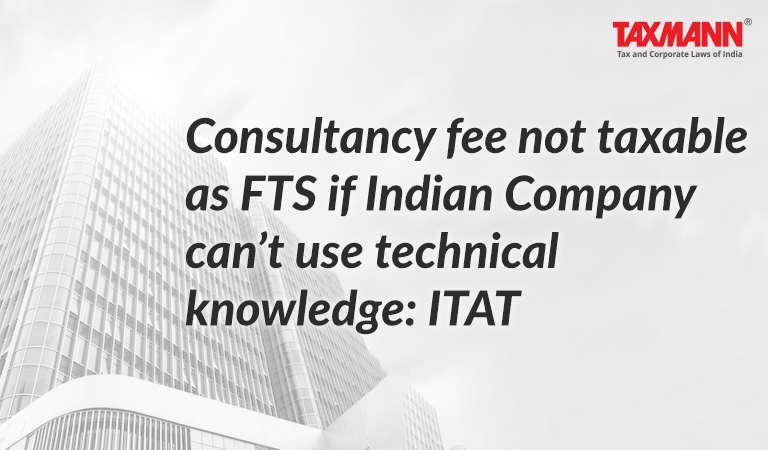Consultancy fee not taxable as FTS if Indian Company can’t use technical knowledge: ITAT
- News|Blog|International Tax|
- 2 Min Read
- By Taxmann
- |
- Last Updated on 21 December, 2022

Case Details: Buro Happold Ltd. v. DCIT - [2022] 145 taxmann.com 450 (Mumbai-Trib.)
Judiciary and Counsel Details
-
- Aby T Varkey, Judicial Member & M. Balaganesh, Accountant Member
- Vijay Mehta for the Appellant.
- Sunil Umap for the Respondent.
Facts of the Case
The assessee was a company registered in the United Kingdom and was a tax resident of that State. During the relevant year, it provided structural and MEP engineering and consultancy services for various buildings and projects in India to Buro India and other clients.
The Assessing Officer (AO) treated the sum received by the assessee as fees for technical services (FTS). The assessee contended that it did not make available any technical knowledge or skill etc and thus the same should be characterized as Business Income falling under Article 7 of the DTAA.
The matter was reached before the Mumbai Tribunal.
ITAT Held
The Mumbai Tribunal held that technology is considered to have been made available when the recipient is competent and authorized to use it independently and without relying on the service provider.
To be able to retain and use the technical knowledge, experience, skill, know-how, or processes on their own in their business or for their own benefit, the recipient must receive and retain these resources from the service provider, even after the service has ended. The recipient should then have the freedom to use these technical resources as they see fit.
Undisputedly, in the instant case, the technical design/drawings/plans provided by the assessee to the Indian entity are specific to a particular project and cannot be used by the Indian entity in any future projects. Based on this evidence, it can be concluded that the assessee had not made available any technical knowledge, experience, skill, know-how, or processes while developing and supplying the technical drawings/designs/plans.
Thus, the amount received by the assessee has to be treated as business profit and in the absence of a PE in India, it cannot be brought to tax in India.
Disclaimer: The content/information published on the website is only for general information of the user and shall not be construed as legal advice. While the Taxmann has exercised reasonable efforts to ensure the veracity of information/content published, Taxmann shall be under no liability in any manner whatsoever for incorrect information, if any.

Taxmann Publications has a dedicated in-house Research & Editorial Team. This team consists of a team of Chartered Accountants, Company Secretaries, and Lawyers. This team works under the guidance and supervision of editor-in-chief Mr Rakesh Bhargava.
The Research and Editorial Team is responsible for developing reliable and accurate content for the readers. The team follows the six-sigma approach to achieve the benchmark of zero error in its publications and research platforms. The team ensures that the following publication guidelines are thoroughly followed while developing the content:
- The statutory material is obtained only from the authorized and reliable sources
- All the latest developments in the judicial and legislative fields are covered
- Prepare the analytical write-ups on current, controversial, and important issues to help the readers to understand the concept and its implications
- Every content published by Taxmann is complete, accurate and lucid
- All evidence-based statements are supported with proper reference to Section, Circular No., Notification No. or citations
- The golden rules of grammar, style and consistency are thoroughly followed
- Font and size that’s easy to read and remain consistent across all imprint and digital publications are applied



 CA | CS | CMA
CA | CS | CMA
